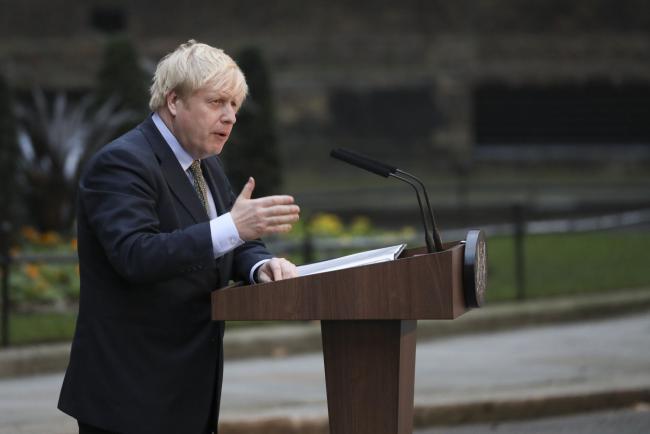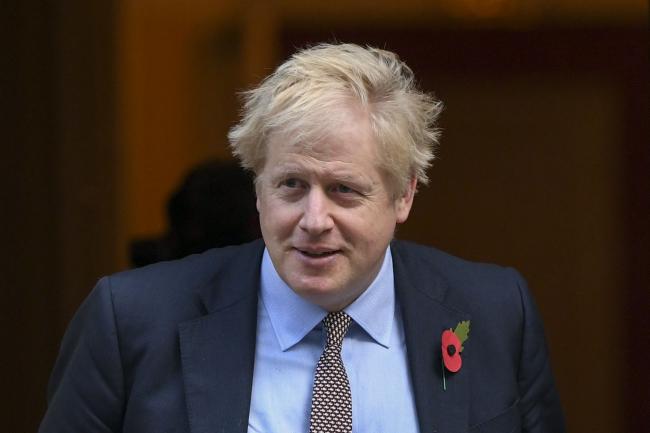(Bloomberg) -- After feeling ignored over Brexit for the last four years, British business is hoping for a change of fortune in 2020.
As Prime Minister Boris Johnson prepares to start trade talks with the European Union, U.K. companies are gearing up to lobby for a final accord that limits any economic disruption. At stake is access to the U.K.’s single biggest export market.
“Ministers need to work with us at pace to get the detail right,” said Adam Marshall, director general of the British Chambers of Commerce, which represents 75,000 businesses. “The focus has to be on getting concrete answers to the real-world questions facing business and the economy.”
U.K. companies have had a torrid time since the 2016 referendum, wasting resources on stockpiling and contingency planning in anticipation of cliff-edge deadlines that have come and gone. Johnson’s big election win may have ended the immediate political uncertainty, but there’s still significant doubt over the future relationship with the EU and what it will mean for businesses.
When Johnson meets European Commission President Ursula von der Leyen and the EU’s chief negotiator, Michel Barnier, in Downing Street on Wednesday to discuss the year ahead, the talks won’t explicitly focus on trade. Even so, the two are likely to reiterate the choice facing the prime minister: he can decide to align closely with the rules of the 27-member bloc, which takes about 45% of its exports, in exchange for favorable market access -- or seek to diverge from EU norms at the cost of creating barriers to trade.
Boris Johnson’s Biggest Post-Election Problem Is What to Do Next
“We are all on tenterhooks to see what his direction of travel is,” said Andrew Large, director general at the Confederation of Paper Industries. “What we want is something that is as close to the status quo as we can get.”
Tight Timeline
A key concern for business is the short timetable for trade talks. Johnson has ruled out any extension to the Brexit transition phase -- due to end on Dec. 31 2020 -- meaning the U.K. will have less than 11 months to thrash out an agreement with the EU. It took the bloc five years to strike market-opening accords with Japan and Canada and 20 to get deal with the Mercosur group of Argentina, Brazil, Paraguay and Uruguay.
“This is going to be a crazy rush,” said Anna Jerzewska, an independent customs expert and consultant for the British Chambers of Commerce. “I don’t think people understand how much we need to do in such a short period of time.”
What Brexit Will and Won’t Change on Jan. 31: QuickTake
Jerzewska said Britain will want to conduct a thorough impact assessment of U.K.-EU trade before the talks begin so it knows its red lines in the negotiations. That exercise is yet to happen and the U.K. lacks the capacity to do it quickly, she said.
London will also need to leave time for processes like the legal scrubbing of the final text -- a potentially protracted process where lawyers from the affected countries pore over the final agreement -- and ratification by EU member states, all of which will further eat into the 11-month transition period.
Canada Deal?
Time pressure notwithstanding, lobbyists for British industry view a deal as possible -- but only in one of two ways.
The U.K. could sign up to widespread regulatory alignment with the EU to limit trade friction, something that would be politically difficult for Johnson, who has pushed Brexit as an opportunity to take back control over Britain’s laws. Or it could refuse -- but then it would have to live with extra bureaucracy like customs checks and new paperwork on commerce with the EU.
The latter option looks more like the EU’s accord with Canada, something that would spell pain for U.K. firms, said Peter Hardwick, a trade policy adviser at the British Meat Processors Association.
“A Canada-style deal really isn’t any good,” said Hardwick. “It’s not all singing and all dancing.”
Importantly, services wouldn’t be covered by such a deal. They make up 80% of the U.K.’s economy and in this area Britain has a trade surplus with the EU.
Time to Adjust
Another concern for business is having sufficient time to reorient their operations to be ready for the new trading relationship. Systems and procedures can take months to build, meaning companies may have to repeat their exercises for Britain’s original departure date in 2019 and plan for disruption on Jan 1. 2021.
One way out would be if Johnson and the EU agree to extend the transition period in all but name, giving businesses additional time to prepare for the new regime.
“Changes can’t be made overnight,” said Seamus Nevin, chief economist at MakeUK, which represents the U.K.’s manufacturing industry. “The lead-in period is going to be very important.”

